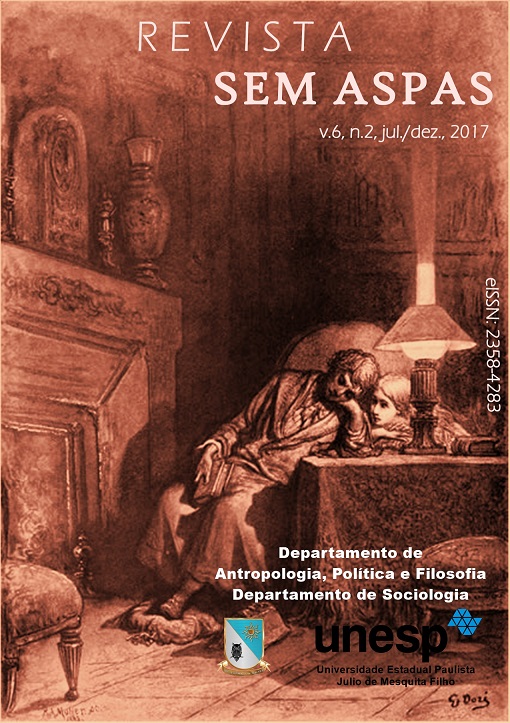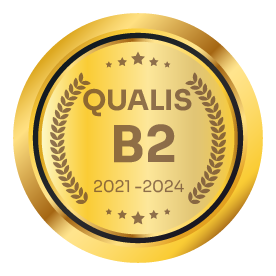Society and education in Rousseau: from the political thought to the project of natural and moral education
DOI:
https://doi.org/10.29373/semaspas.v6.n2.2017.10933Keywords:
Rousseau. Education. Social contract. Sovereignty. Freedom.Abstract
This article aims to reflect on the thinking of the philosopher Jean-Jacques Rousseau (1712-1778) from his critique of the divine law and the degeneration of customs by the establishment of the arts; his political thought and the idea developed in the workt The Social Contract of a just, legitimate and democratic society governed by the general will and by a sovereign and free people; until his pedagogical project of natural (negative) and moral (positive) education, exposed in Emílio or Education, where he tries to think how it would be possible to form a sovereign people adn to establish the general will in a corrupt society through an education that formed free, independent and moral individuals.Downloads
References
ROUSSEAU, Jean-Jacques. Emílio ou da educação. 3ed. Rio de Janeiro: Bertrand Brasil, 1995.
ROUSSEAU, Jean-Jacques. Discurso sobre a origem e o fundamento da desigualdade entre os homens. In: Os pensadores/Rousseau. 3.ed. São Paulo: Victor Civita, 1983a. p. 233-282.
ROUSSEAU, Jean-Jacques. Discurso sobre a origem das línguas. In: Os pensadores/ Rousseau. 3.ed. São Paulo: Victor Civita, 1983b. p.157-199.
ROUSSEAU, Jean-Jacques. Discurso sobre as ciências e as artes. In: Os pensadores/ Rousseau. 3.ed. São Paulo: Victor Civita, 1983c. p.321-352.
ROUSSEAU, Jean-Jacques. Projeto para a educação do Senhor de Sainte-Marie. Porto Alegre: Editora Paraula, 1994.
ROUSSEAU, Jean Jacques. O Contrato Social: princípios do direito político. 3.ed. São Paulo: Martins Fontes, 1996.
ARANHA, Maria Lúcia de Arruda. A História da Educação e da Pedagogia: geral e do Brasil. 3.ed. São Paulo: Moderna, 2006.
DALBOSCO, Claudio Almir. Da educação natural e da educação social (moral) no Emílio de Rousseau. In: Filosofia e educação no Emílio de Rousseau: papel do educador como governante. Campinas: Alínea, 2011.










